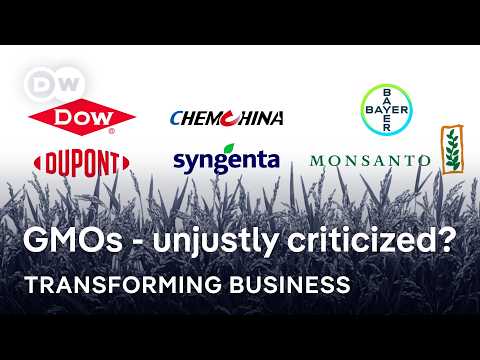Genetically modified food and seeds are under fire. Yet scientists agree: genetic engineering is a key technology for boosting agricultural yields and profits. It can also contribute to environmental and climate protection—through drought-resistant crops, for example, like those developed by the Argentine company Bioceres. New methods such as genome editing and CRISPR/Cas9 are expanding the possibilities. While North and South America have long embraced genetic engineering, skepticism remains high in Europe and Asia. In the EU, green genetic engineering is effectively banned, and genetically modified organisms (GMOs) are strictly regulated in many countries. That makes approval for new products expensive and time-consuming—often only affordable for major corporations like Bayer, Syngenta, or BASF. These companies face criticism for dominating the market. NGOs like Greenpeace also play a role in shaping the negative image of green genetic engineering. This episode of Transforming Business explores the potential of genetic engineering in agriculture—and asks whether the criticism of companies like Bayer & Co is truly justified.
Chapters
0:00 Intro
0:13 What is genetic engineering?
1:43 The potential of genetic engineering
5:04 Why does genetic engineering have such a bad reputation?
7:45 Genetic engineering and climate protection
9:53 The market power of corporations
11:42 Legal regulations
13:39 Public perception and the role of NGOs
16:48 Outro
#TransformingBusiness #GMO #Agriculture
For more news go to: http://www.dw.com/en/
Follow DW on social media:
►Instagram: https://www.instagram.com/dwnews
►TikTok: https://www.tiktok.com/@dwnews
►Facebook: https://www.facebook.com/deutschewellenews/
►Twitter: https://twitter.com/dwnews
Für Videos in deutscher Sprache besuchen Sie: https://www.youtube.com/dwdeutsch
Subscribe: https://www.youtube.com/user/deutschewelleenglish?sub_confirmation=1
Author: DW News
Go to Source
News post in September 13, 2025, 3:05 pm.
Visit Our Sponsor’s:
News Post In – News





